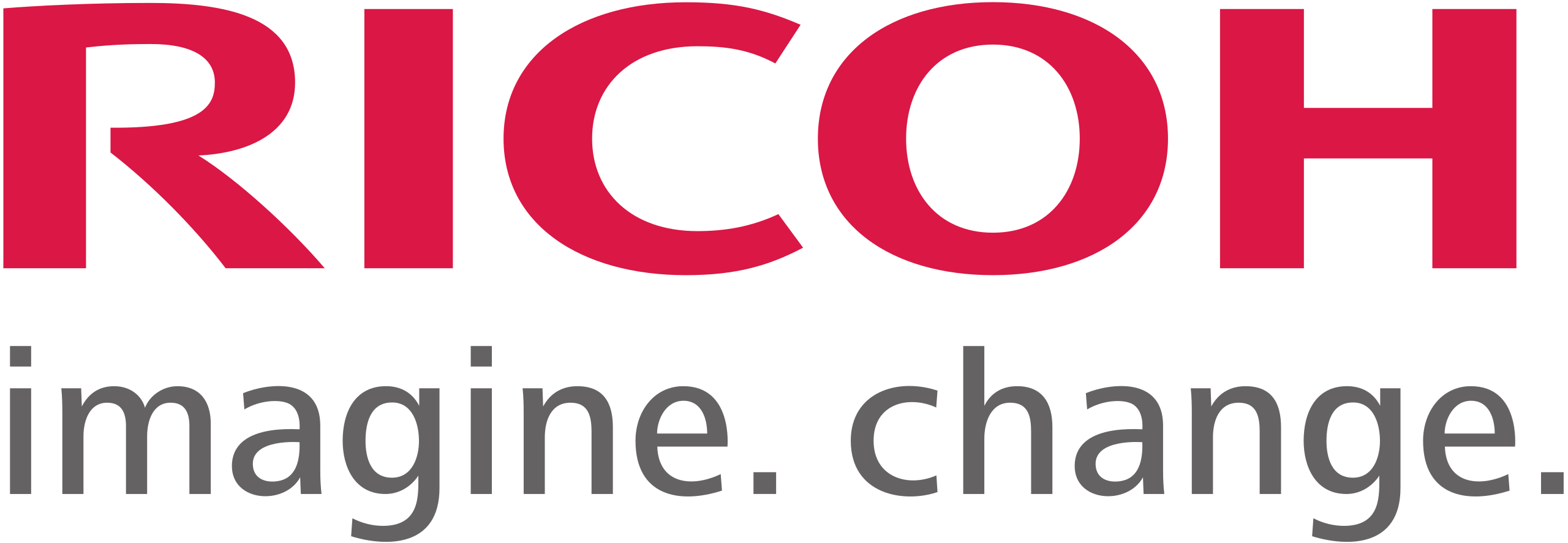6 min read
Cloud Storage Tips: Pro Advice on Choosing Providers
By:
Kali Mogg
on
March 21, 2018
Updated: August 8, 2024

Standleys knows technology, all the way back to the 1930s when we started selling typewriters from a building in downtown Chickasha, Oklahoma. Throughout the years, we’ve been proud to deliver technological products and services that were well ahead of the leading trends.
Among the many technological breakthroughs we’ve experienced throughout the years are digital storage devices. These continue to innovate rapidly in both size and portability. Not long ago, we were introduced to portable thumb drives that could store the same information that required thousands of computer disks. Today’s external drives can now store data that once required an entire separate room.
These days, the latest data storage trend isn’t portable - it’s virtual
Cloud storage, as the name implies, stores your data in a folder structure on the cloud. Whether it’s text documents, images, videos, synced folders or other file types, credentialed individuals can access those files and folders on multiple devices when they’re on the cloud. That includes displaying, downloading and sharing any cloud files using a portable device or a mobile app - whenever they need them and wherever there’s an internet connection.
The benefits of cloud storage space start with personal convenience and extend to file sharing and improved collaboration between employees. It’s one of those things that’s difficult to live without once you’ve experienced it, and Standleys can help you find the best solutions tailored to the unique needs of your organization.
.png?width=650&name=Copy%20of%20Quote%20Graphics%20(29).png)
Here are five essential tips to get you started:
1. Clarify your requirements
The first step is to figure out what your company needs. Small businesses often make the mistake of researching cloud storage options without knowing what their requirements are. There are many different types of cloud computing services on the market today, so understanding what you need will save you a lot of time in your research.
It’s always a good idea to invest in services that can grow with your business. The key to getting started is to outline your core requirements and then consult with an expert on what popular services are out there that can expand as your company grows, with minimal disruption to your operations.
2. Know the three different types of cloud storage services (SaaS/IaaS/PaaS)
Knowing your core requirements will make this step much easier because there are many cloud computing options available on the market today. The three main categories include:
SaaS (Software as a Service)
The SaaS model uses internet-deployed software that offers cloud computing services through cloud storage accounts. Compared to more comprehensive services, SaaS services are an economical way to migrate your data storage to the cloud.
Examples: NextCloud, Dropbox, Google Drive
IaaS (Infrastructure as a Service)
Cloud computing originated with IaaS services. They include storage services, databases and personal digital servers. Services are priced according to how much data is used and/or when it is used.
Examples: Microsoft Azure, Amazon Web Services, Google Cloud Infrastructure, IBM Cloud
PaaS (Platform as a Service)
PaaS is a centralized cloud service within a network. Access to this type of cloud service is available only on a deployed system. PaaS services typically appeal to companies that want to build customized solutions tailored to their organization.
Examples: Amazon Web Services Lambda, Microsoft Azure, SAP Cloud, Salesforce Lightning
What should I choose? Saas, Iaas, Paas, or a hybrid?
Making the right choice of cloud services depends on the needs of your organization. Before diving in, it pays to get the right advice - it can help save you a lot of time and money.
3. Prioritize security when choosing a cloud provider
A data breach can translate to absolute disaster for a small business. News travels fast on the internet, and talk about leaked data not only scares away potential clients - it can permanently damage a company’s reputation.
.png?width=650&name=Copy%20of%20Quote%20Graphics%20(30).png)
A recent Bank of America Merchant Services report revealed that 30% of respondents would permanently end a relationship with a small business that suffered a data breach. That’s why it’s critical to invest in security today so you can avoid financial disaster tomorrow.
Your data can actually be safer on the cloud when compared to external hard drives and paper files around the office. When you invest in the services of a reputable cloud provider and backup service, you are tapping into their world-class file storage infrastructure without any significant hardware investment on your behalf. Along with Managed IT services, cloud services ensure your data is protected both on and off-site.
Here are some key security considerations when choosing a cloud services provider:
- Identity and Access Management (IAM) - determines how access to information is controlled. Some cloud providers can integrate with your operating system or have their own systems in place. Secure IAM systems typically have comprehensive access policies, including multi-factor authentication.
- Threat intelligence - a secure cloud services provider should have robust threat intelligence features that can quickly identify current threats and respond in a timely fashion.
- Physical security - a reputable cloud provider should have first-in-class physical security in place that ensures its data center is continuously protected from external threats.
- Encryption - encryption technology encrypts your data with an additional level of security while it’s transferred and shared throughout the organization.
- Firewalls - most cloud services providers have next-generation firewall systems in place that use features such as domain name blocking and packet filtering, along with an intrusion prevention system.
4. Choose a cloud services provider with infrastructure that goes beyond your requirements
As your business grows, so will your technological needs. That’s why it’s essential to choose a cloud services provider that can scale with your business. Some key considerations to look out for include:
- Enterprise-grade data centers
- Top-notch service equipment
- High service levels, guaranteed uptime
- Backup and recovery plans
- Support that is available when you need it
Choosing a cloud service provider is not something you do often. Make the right choice the first time around by choosing a provider with infrastructure that can grow with your business.
5. Choose a cloud services provider that’s aligned with your team
Your cloud services provider offers more than just a service - it should be a trusted part of your team responsible for keeping your data secure.
Here are some key factors to consider when making that choice:
- Years of experience in the industry, including successful relationships with organization of all types and sizes
- First-in-class infrastructure and data security
- Data ownership - ensure you own your data and that you have a comprehensive agreement allowing you to migrate that data should you choose to change providers
- Ongoing support and access to support staff
- A service agreement that guarantees uptime, including the infrastructure to back it up
Moving sensitive data - along with any client data - to the cloud is analogous to having one of the core operations of your business being run by the cloud provider. That’s why making the right choice is absolutely critical.
Standley Systems is Your Trusted Cloud Computing Partner
Standleys can help you embrace technological innovation by tailoring the best cloud storage solution to your business. Convenience, security and increased team collaboration are just some of the benefits of cloud storage, and we can help make it possible. We’ve been in the technology business for nearly 90 years and are committed to building valuable relationships with our customers with an unwavering dedication to their success.













